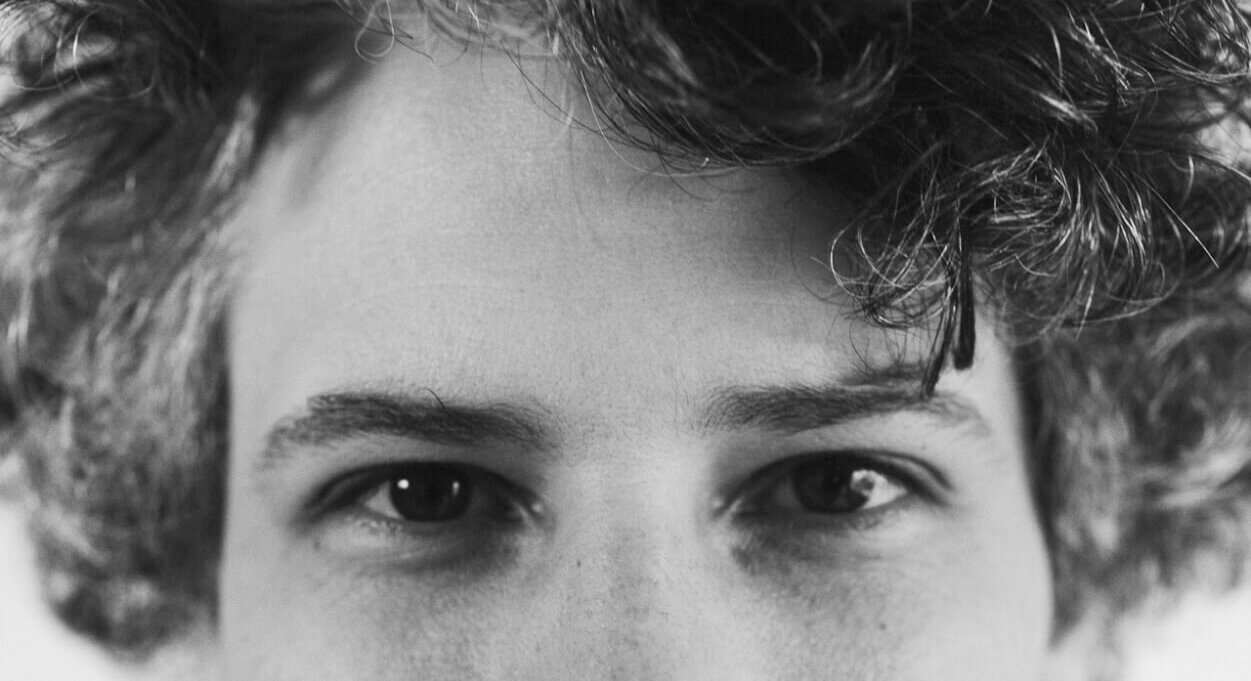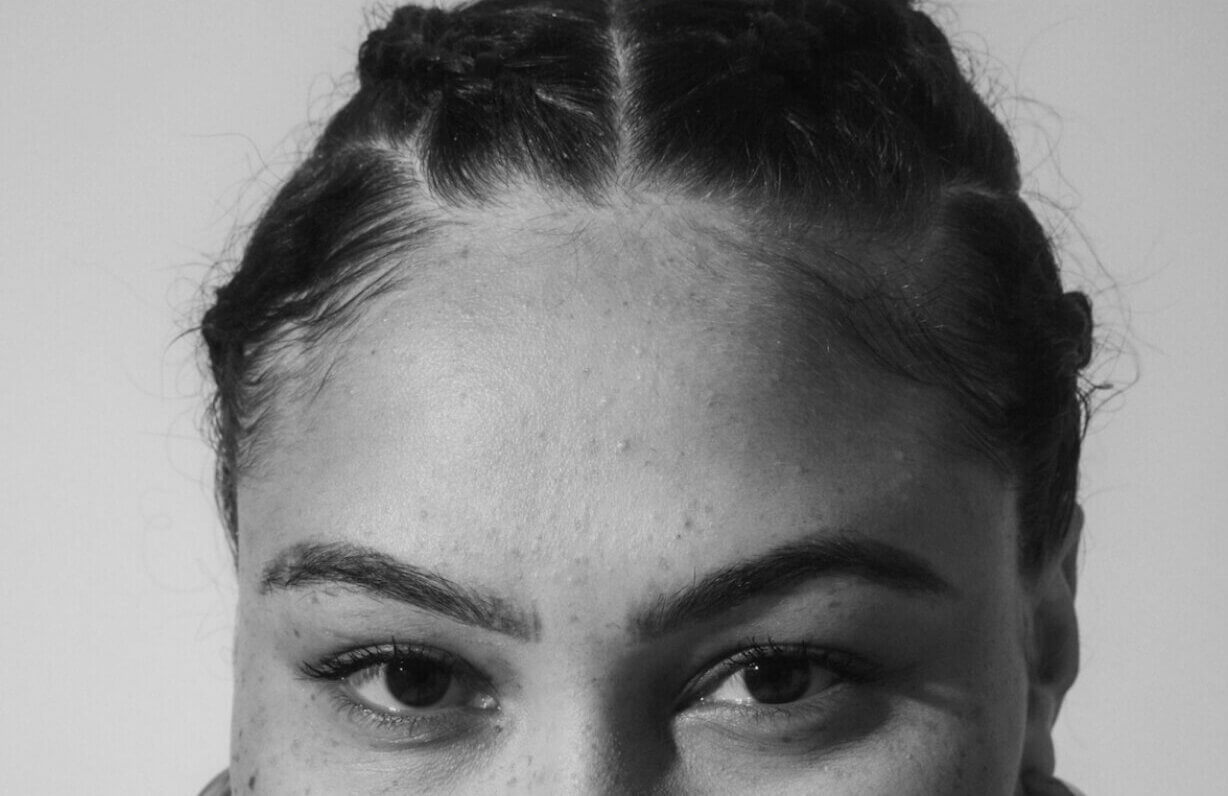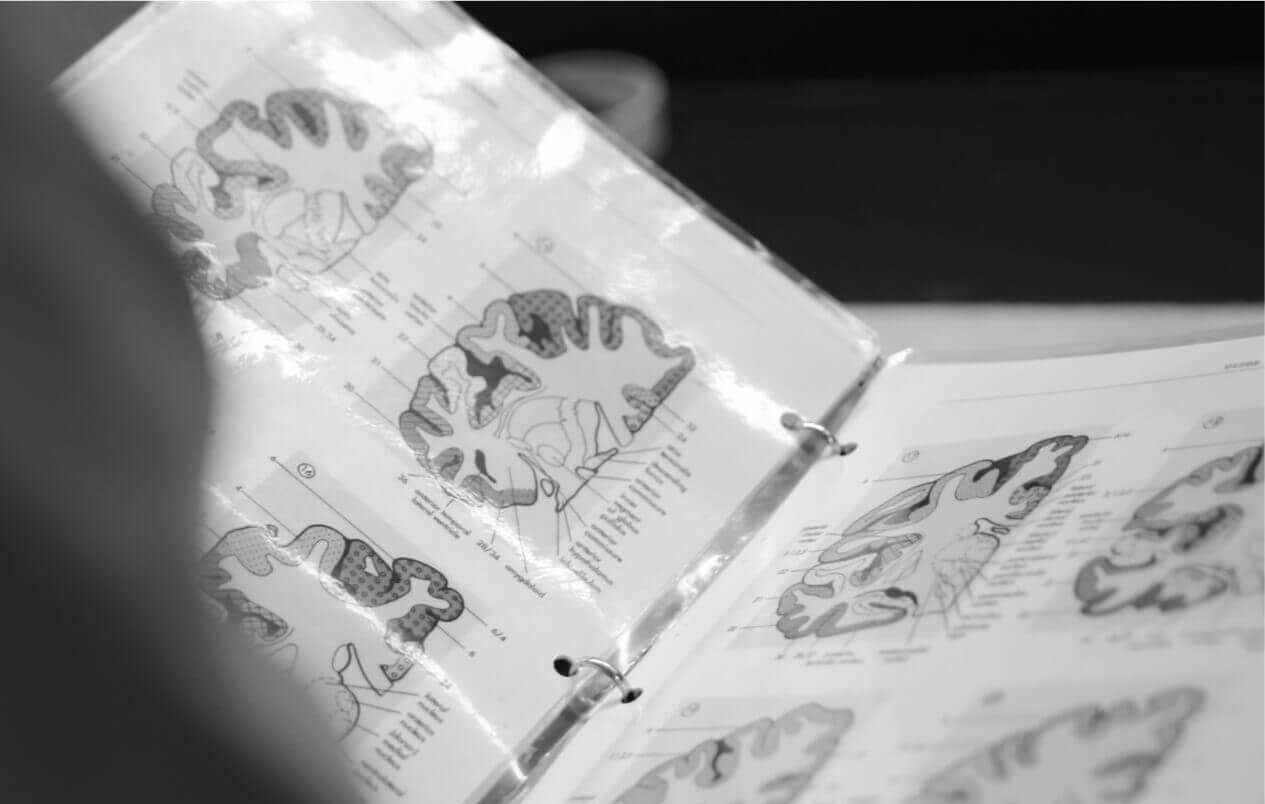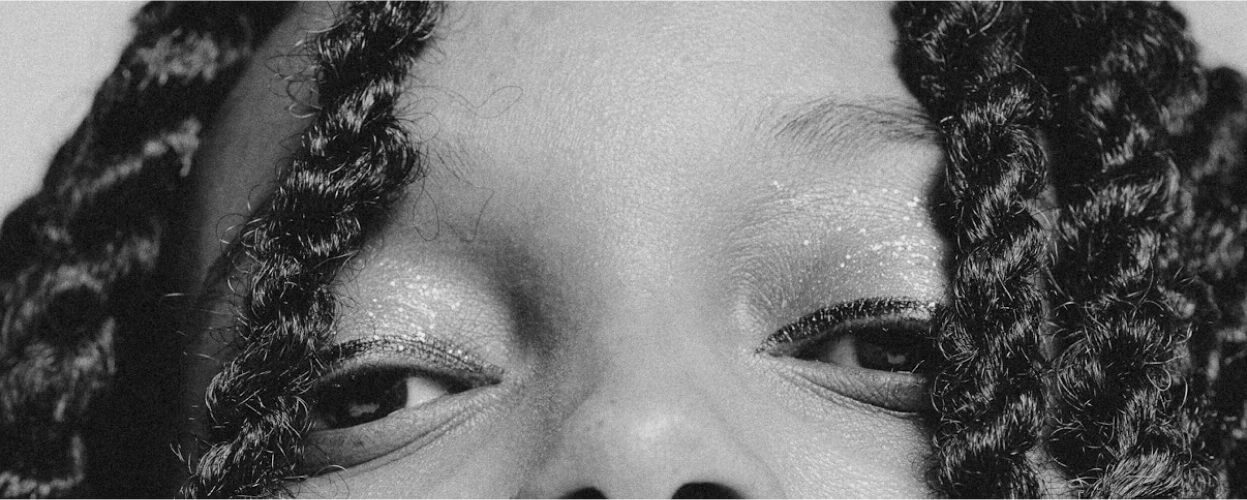Lessons From a Boy and his Monkey
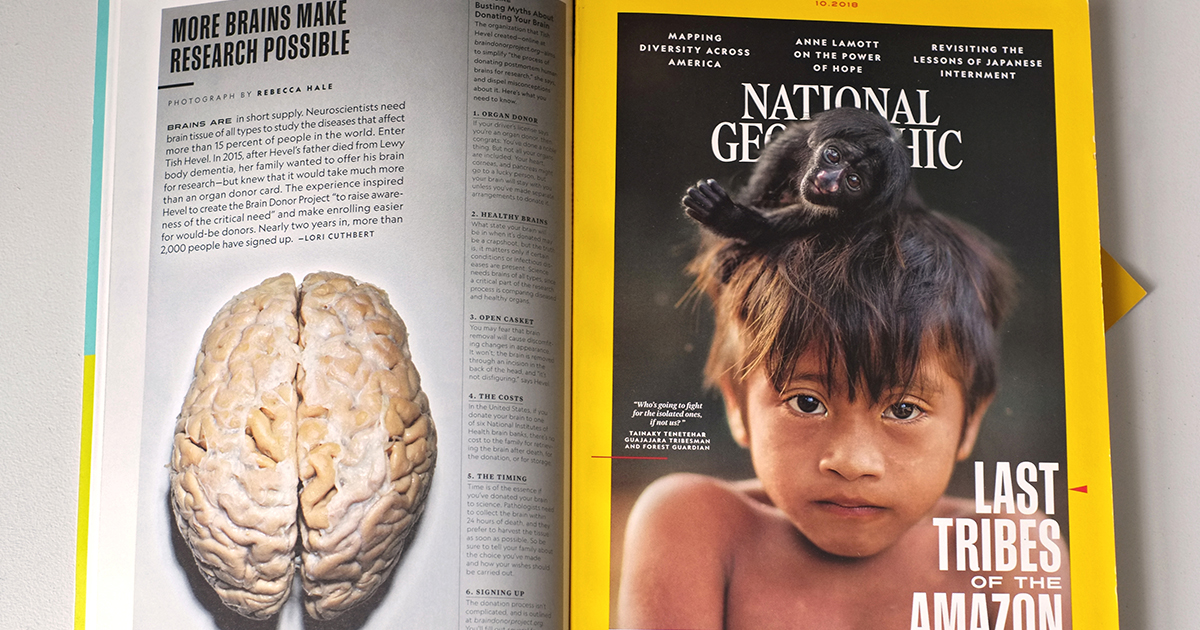
A year ago at this time a yellow magazine cover bearing the photo of a little boy with a monkey on his head suddenly appeared and made one heck of a mark on The Brain Donor Project.
It was National Geographic, no less. The issue contained a story about the critical need for people to donate their brains when they die. And it told readers how to make arrangements through our site. The response was immediate and profound. Within just a couple of weeks several thousand people joined the ranks of those who want to leave this precious gift to neuroscience.
We learned a lot from this. Specifically, we found out what other countries and regions have begun brain banking for research. Thanks to National Geographic’s international readership, many of our inquiries were from outside the U.S., and it wouldn’t be possible for the NeuroBioBank to receive a recovered brain fast enough. Interestingly, the NBB does support international science by shipping samples to qualified researchers in many other countries. So we had to do some quick research to refer those potential donors elsewhere, if resources were available.
We also discovered that many people who have devastating disorders are more than willing to lessen that burden for patients in the future. They wrote us many notes along the lines of “… if donating my brain can help find a cure for this horrible disease, please take it.” These acts of selflessness in the midst of great suffering were terribly humbling. So many people are living truly difficult lives.
And it wasn’t lost on us that people often just need to be invited to do the right thing. Scores of those who responded didn’t have a neurological disease but wanted to help by making plans to donate their “control” brain. Happily.
It’s no secret that a good photo conveys powerful emotion. Certainly, the editors at National Geographic make decisions this way, using a great picture to illustrate a story about the last tribes of the Amazon. But the boy with the monkey on his head will always remind us that it is the kindness of strangers who can impact future brain health all over the world.
